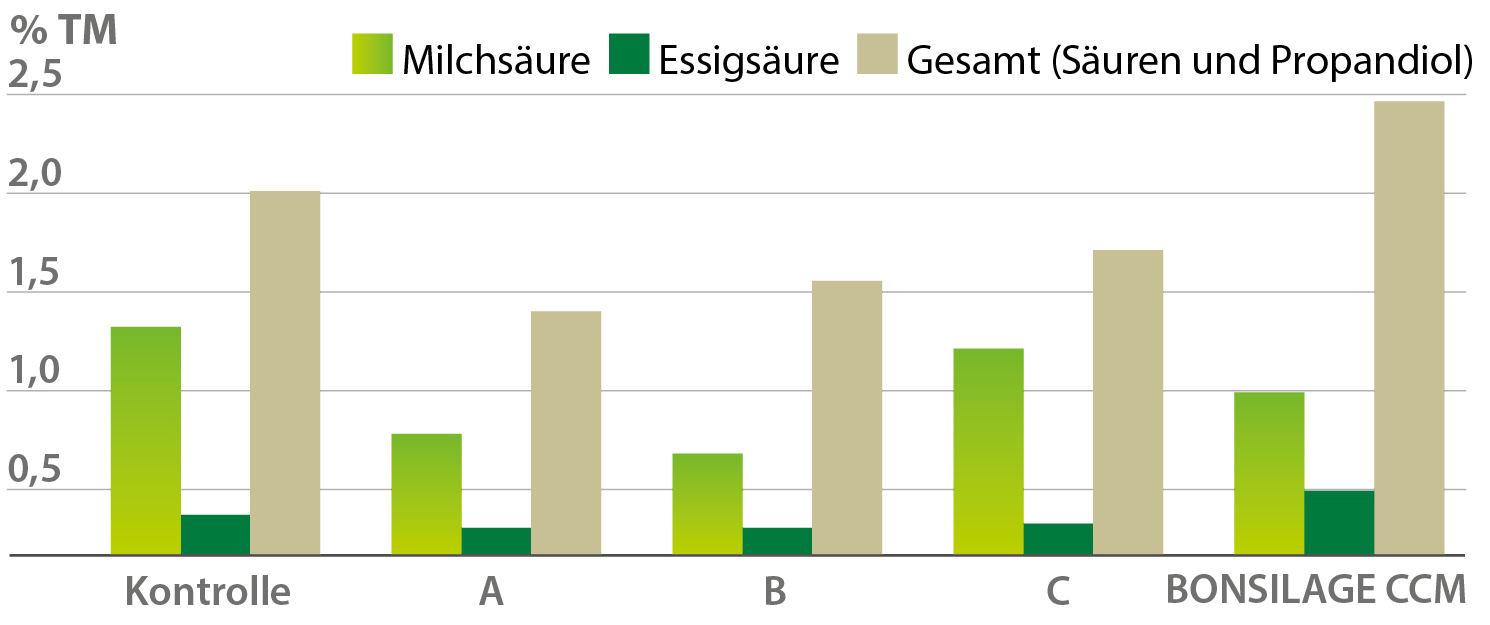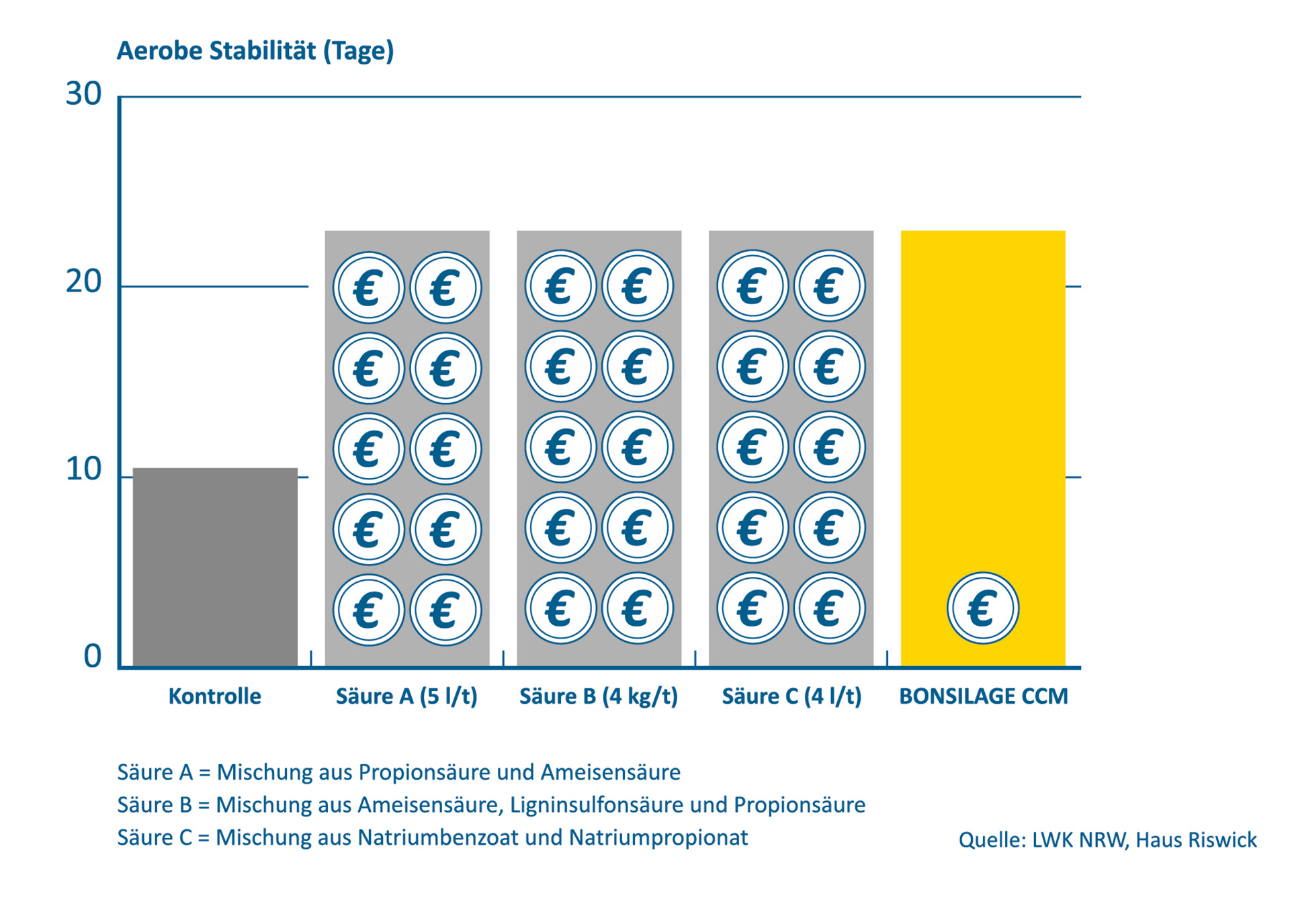
bonsilage CCM impresses in conservation

In many places, CCM conservation is still done with acid products based on propionic acid. Trial results from Haus Riswick confirm that bonsilage CCM is an absolutely effective, economical and non-corrosive alternative based on a biological silage additive.
Trial design
The freshly milled CCM material (approx. 69 % DM) was treated with various acid variants and (as the only organic variant) with bonsilage CCM.
- Variant A: Propionic acid/formic acid mixture (5l/t, approx. 6 € per t silage)
- Variant B: Formic acid/lignosulfonic acid/propionic acid mixture (4 kg/t, approx. €4.60 per tonne of silage)
- Variant C: Sodium benzoate/sodium propionate mixture (4 l/t, approx. € 5 per tonne of silage)
- bonsilage CCM (1 g/t, from € 1.20 per ton of silage)
The different silage variants were set up on a laboratory scale for 90 days. The fermentation acids and aerobic stability were then determined (see Figures 1 and 2).
Analysis of fermentation acid pattern
Figure 1 shows that the conversion of plant sugars into fermentation acids is somewhat inhibited overall when using propionic acid mixtures with a strong conservation effect. The effect of L. buchneri in bonsilage CCM is also evident, as the proportion of acetic acid is about twice as high compared to the other variants.Overall, the plant sugar is converted most effectively when bonsilage CCM is used, which is reflected in the highest quantities of total acid and alcohol by far.
Analysis of aerobic stability
All products used were convincing in terms of aerobic stability (see Fig. 2), which was doubled in all variants compared to non-treatment. There was no difference between bonsilage CCM and the different acid variants in terms of effectiveness on aerobic stability. This once again confirms the efficiency of the bonsilage products, in this case bonsilage CCM.
Convincing performance and economy
The use of bonsilage CCM offers many advantages. In addition to the increased palatability and digestibility as well as the repeatedly proven improvement in aerobic stability (DLG quality mark WR 2), the excellent price-performance ratio stands out.
The treatment costs of various acid variants normally range between €4 and €6 per ton of silage, compared to only around 1/4 to 1/3 of the costs per ton of silage for treatment with bonsilage CCM, depending on the quantity purchased (see Fig. 3). Used correctly, i.e. CCM with up to 65 % DM and sufficient storage time of at least 2, preferably 3 months, there can be no alternative to bonsilage CCM.

